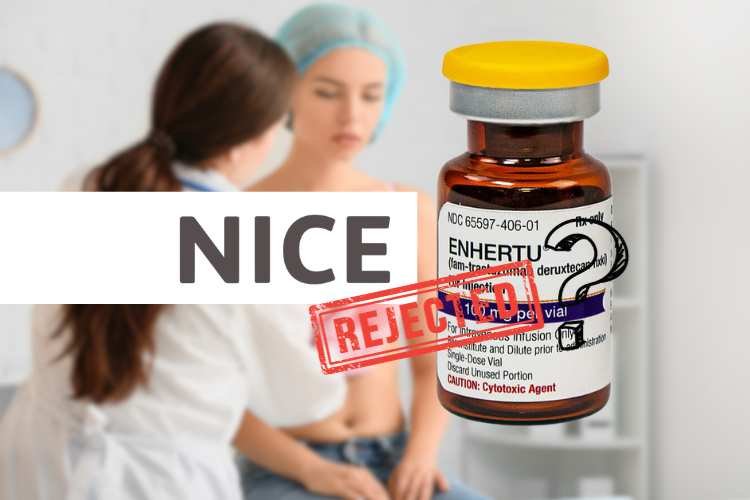The remarkable efficacy data that initially earned AstraZeneca and Daiichi Sankyo’s Enhertu a standing ovation at the ASCO meeting last year has encountered a surprising twist. England’s National Institute for Health and Care Excellence (NICE) has issued draft guidance indicating that the cost-effectiveness of Enhertu does not warrant its coverage by the National Health Service (NHS) for the treatment of HER2-low metastatic or unresectable breast cancer following chemotherapy.
This recommendation from NICE comes as a curveball, especially considering that the agency acknowledged Enhertu’s impressive clinical data in its assessment. However, NICE’s appraisal committee believes that the cost-effectiveness of this HER2-targeted drug does not align with the efficient allocation of NHS resources.
Enhertu is priced at £1,455 per vial, and AstraZeneca and Daiichi have extended a confidential discount, which already applies to the drug’s use in previously treated HER2-positive breast cancer cases. Instead of broad coverage in this context, Enhertu is made accessible through a cumbersome managed access program under the Cancer Drugs Fund.
Also Read: Enhertu, A Breakthrough Therapy For HER2 Mutant NSCLC, Gets EU Nod
It’s important to note that NICE’s recommendation is not final. The evaluation process for Enhertu is currently open for comments, and the committee responsible will reconvene on November 7. As this process unfolds, AstraZeneca and Daiichi may need to offer a more substantial discount to sway NICE’s stance. Enhertu had initially carved out a unique space in the HER2-low category following groundbreaking trial results, previously considered a subset of HER2-negative cancer. Approximately 1,000 individuals with this specific cancer type could have benefited from Enhertu had NICE recommended it.
Helen Knight, Director of Medicines Evaluation at NICE, described the antibody-drug conjugate as “a potentially significant development” for patients, emphasizing its clinical promise.
In the DESTINY-Breast04 trial, Enhertu demonstrated a substantial reduction in the risk of death (approximately 40%) and the risk of disease progression or death (about 50%) compared to the physician’s choice of chemotherapy. The NICE committee acknowledged that Enhertu can delay disease progression and enhance overall survival in the HER2-low population. Notably, NICE and the drug manufacturers held differing views on Enhertu’s economic model, leading to challenges concerning factors such as vial wastage, administration costs, and treatment duration.
Also Read: New Drug Enhertu Shows Promise For HER2-Mutant Lung Cancer Patients (IASLC WCLC 2023 Conference)
The HER2-low indication has been a pivotal driver of Enhertu’s growth, following its landmark FDA approval in August 2022. For 2023, Daiichi Sankyo anticipates Enhertu’s sales to more than double year-over-year, reaching 320 billion Japanese yen (approximately $2.34 billion), as stated in July. The ongoing discussions and evaluations will determine the future accessibility and utilization of this promising therapy for patients in the UK.





























